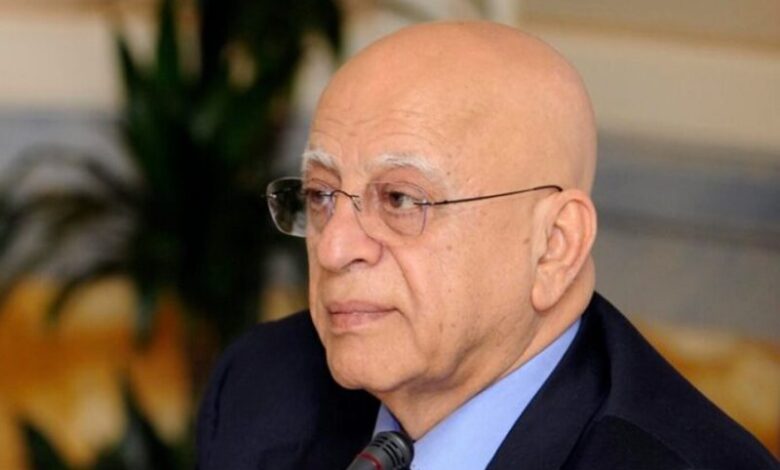No to Converting Churches and Temples
Ahmad Al-Sarraf/Al-Qabas/February 18/ 2025
(Free Ttranslation from Arabic by Elias Bejjani)
لا لتحويل الكنائس والمعابد
أحمد الصراف/القبس/18 شباط/2025″
دأبت جهات معروفة على الإعلان عن جمع تبرعات، في الكويت ودول خليجية أخرى، لمشاريع شراء كنائس ومعابد يهودية، وتحويلها لمساجد!
لقد سبق أن كتبنا وحذرنا من خطأ هذا الاتجاه، وخطورة مثل هذه المشاريع، التي سيأتي يوم ويكون لها رد فعل غير مريح، فواضح أن الهدف لا يتعلق بنشر الدين، بقدر ما يتعلق بتحدّي مشاعر الآخرين، في عقر دارهم، ولنقول لهم ما أضعف إيمانكم، فقد بعتم معبادكم بأبخس الأثمان، وها نحن نشتريها ونحولها لدور عبادة لنا!
لو كان الهدف من وراء هذه المشاريع الرغبة في تقديم خدمة لمسلمي المنطقة، عن طريق بناء مساجد ومراكز دينية، فلم استقصاد واستهداف دور عبادة الغير، وجرح مشاعر أهالي المنطقة، وهناك أراضٍ ومبانٍ كثيرة معروضة للبيع؟
السبب يكمن ربما في أن القائمين على هذه المشاريع يعلمون بأن الإعلان عن بناء مشاريع دينية في ديار الغير لن يجلب ما يستهدفون لجمعه من أموال، أما إن كان الإعلان يتعلق بشراء كنيسة أو كنيس يهودي، فهنا تسهل كثيراً إثارة الحمية الدينية لدى السذج وغيرهم، ودفعهم للتبرع بسخاء أكبر، وهنا تكمن استفادة «القائمين عليها» من فكرة شراء كنائس ومعابد بدلاً من شراء أرض فضاء، أو مبنى عادي، وتحويله لمسجد. كما ان الوقت مناسب حالياً لمثل هذه الإعلانات، ومشاعر كراهية وبغض الغير في المنطقة في ذروتها!
من ناحية أخرى، فإن شراء مثل هذه المشاريع، وتحويلها لمساجد، أو مراكز دينية، بمبالغ مليونية، لا يعني، كما يقال، خضوع الصرف عليها لرقابة وزارة الخارجية أو لسفاراتنا في الخارج. فشراء أو بناء أو إصلاح مثل هذه الأماكن وتحويلها لمساجد مسألة معقدة ومكلفة، والرقابة عليها تتطلب وجود مهندسين وفنيين ومشرفين ومحاسبين، في كل سفارة كل دولة لجمعياتنا الخيرية أنشطة فيها، وهذا حتماً غير موجود حاليا، حتى في دولة مثل بريطانيا، فما بالك في دولة أفريقية أو في الهند وباكستان وغيرها، حيث تنفذ مشاريع تقع على بعد مئات الأميال من عاصمة الدولة؟
لا ألوم الجمعيات المسماة بالخيرية، ولا نشكك في أهدافها، ولا في صحة رغبتها في تحقيق مورد للجمعية وللقائمين عليها، فهذا أمر لا حق لنا الاعتراض عليه، لكننا نلوم الجهة الحكومية المسؤولة، التي أعطت هذه الجهات موافقتها، التلقائية غالباً، لجمع الملايين لبناء مثل هذه المشاريع، التي يستحيل مراقبة كيفية تنفيذها، من أية جهة حكومية كانت، بكفاءة عالية، بخلاف تأثيرها السلبي على أهالي المنطقة، وخلق العداء للإسلام والمسلمين، الذين استولوا بأموالهم على كنائسهم ومعابدهم. وسيأتي يوم، حتماً، وهو ليس بالبعيد، الذي ستصدر فيه الوزارة تعميماً بمنع مثل هذه المشاريع، فلمَ لا نمنع مثل هذه المشاريع المثيرة للجدل قبل وقوع الضرر؟
وماذا لو تم شراء الكنيسة أو المعبد، ورفضت السلطات أو بلدية المدينة تالياً تحويله لمسجد، وهذا ما حدث من قبل، أكثر من مرة؟
No to Converting Churches and Temples
Ahmad Al-Sarraf/Al-Qabas/February 18/ 2025
(Free Ttranslation from Arabic by Elias Bejjani)
Prominent entities have recently launched fundraising campaigns in Kuwait and other Gulf countries to purchase churches and Jewish temples with the intention of converting them into mosques.
We have previously warned against this misguided trend and the dangers it entails. Such projects are bound to provoke uncomfortable reactions, as their goal seems less about spreading religion and more about challenging the sentiments of others in their own homelands. The implicit message is clear: “your faith is weak, you have sold your temple for a cheap price, and we are now buying it and converting it into a place of worship for ourselves.”
If the true intention behind these initiatives were to provide religious services for Muslims in the region, there would be no need to target the places of worship of others. There are ample lands and buildings for sale that could serve the same purpose without causing unnecessary wounds to the feelings of the local population.
The reality may be that those promoting these projects know that building religious centers on neutral land does not ignite the same fervor or open wallets as quickly. But announcing the purchase of a church or synagogue evokes religious excitement among the simple-minded, encouraging more generous donations. This is where the “benefit” lies for those behind these campaigns—not in promoting faith, but in exploiting emotion for financial gain. And now, when hatred and resentment toward others in the region are at their peak, such announcements are perfectly timed to stoke these flames.
On a practical level, the conversion of churches or temples into mosques or religious centers, often costing millions of dollars, is not subject to reliable oversight by the Ministry of Foreign Affairs or Kuwait’s embassies abroad. The construction, renovation, and management of such places require engineers, technicians, supervisors, and accountants—a logistical capacity that simply does not exist even in a country like Britain, let alone in remote regions of Africa, India, or Pakistan, where these projects often take place hundreds of miles from the capital.
We do not blame the so-called charitable associations, nor do we question their desire to secure financial resources for their activities. However, the real responsibility lies with the government agencies that grant these bodies their approvals—often automatically—to collect millions of dollars for projects that cannot be effectively monitored. The negative repercussions of these activities far outweigh any perceived benefits, creating hostility toward Islam and Muslims who are seen as seizing churches and temples with their money.
A day will surely come—and it is not far off—when the authorities will issue a circular banning such projects. So why wait for the damage to occur before acting? Why not prohibit such controversial undertakings now, before they spark further division and hatred?
What happens if a church or temple is purchased, only for local authorities or the city municipality to later refuse its conversion into a mosque? This has already happened more than once. Such risks, and their inevitable fallout, should give us pause before we embark on these unnecessary and provocative endeavors.





















